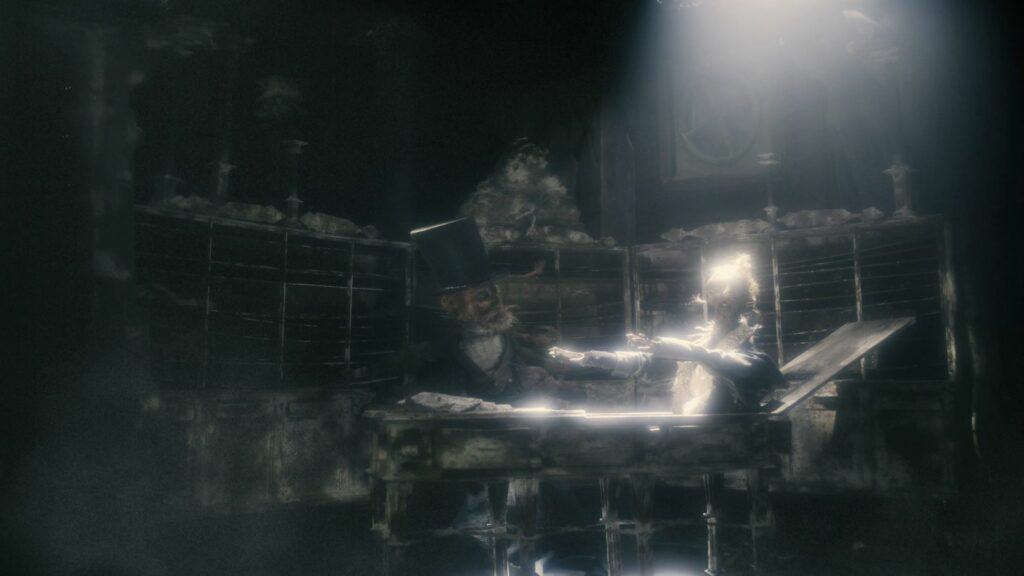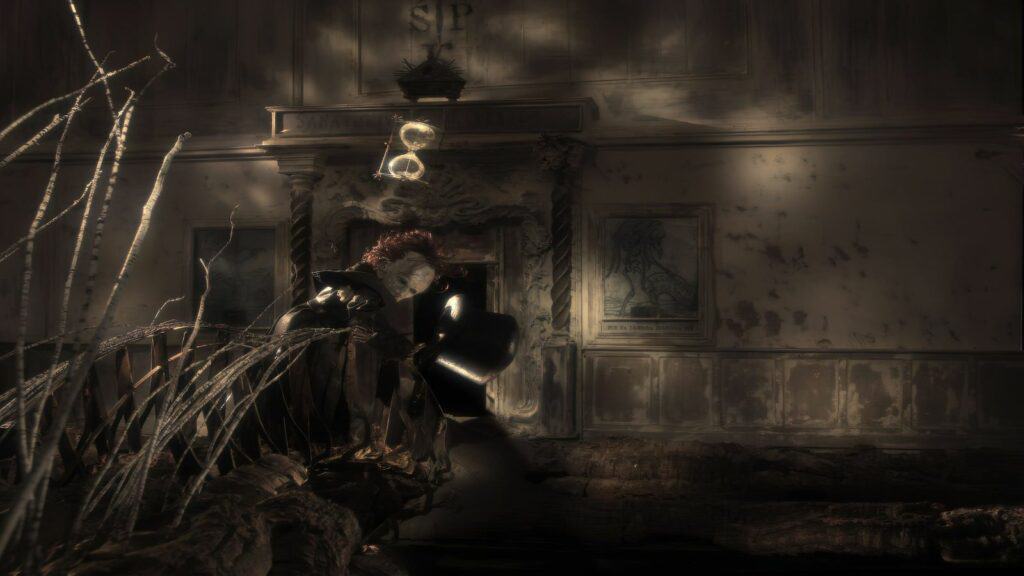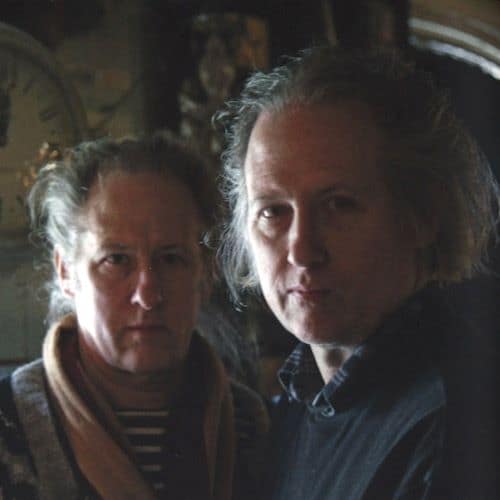Sanatorium Under the Hourglass is the latest film by the Brothers Quay. It was screened in the Giornate degli Autori section of this year’s Venice Film Festival. As the title implies, the film is inspired by the work of Bruno Schulz. It’s not the first time the brothers have drunk from that source since they made a stop-motion film1986 based on The Street of Crocodiles. The most famous adaption of the author’s work is, without doubt, Wojciech Has’s masterful 1973 version named The Hourglass Sanatorium (Sanatorium pod Klepsydra). That is a film which deserves a study of its own, maybe more so than what the Brothers Quay presented this year.
The storyline concerns Jozef, who we first encounter on a gloomy train. His goal with the trip is to visit his dying father in a remote Galician Sanatorium. Once he arrives, he finds the Sanatorium entirely moribund and run by the dubious Doctor Gotard. He tells Jozef that his father’s death that has struck him in his country has not yet occurred. It is apparent that the concept of time, or passage of time, which a famous politician incoherently loves to babble about, works differently within the walls of the sanatorium. It turns out that it is not the only parameter that is inconsistent with the outside world.

Sanatorium Under the Hourglass- ad nauseam
The screening was preceded by a presentation of the work where we were told that we would experience something different where time is not linear, “which we are used to in cinema”. My alarm bells immediately started sounding off, but I was hoping that the weird phrasing was due to an inept introduction rather than indicative of the film itself. The film is a mix of live action and puppets in an attempt to “score the demiurgic nervature of Schulz’s 13th apocryphal month in the Regions of the Great Heresy.” All, according to the brothers’ description. The question is how well those ideas would come across on the screen and what the role of the puppets would be.
I am not sure I have an answer to that question even after the 76-minute runtime was over. The puppets turned out to be the predominant factor in the film. I found myself transported to the cinema of the late sixties/early seventies when these themes were commonplace and investigated with intelligence and artistic merit. Besides Has one could mention André Delvaux, Harry Kümel and many others. If one wants to do the same thing in 2024, it requires a new look at the material. There are later directors who managed to conjure a universe where the past is prevalent without being stuck in it. Guy Maddin is a prime example. Mark Jenkin is yet another, albeit in a different fashion.

What we are presented with here feels more like a museum piece than a piece of original cinema. What is supposed to be eerie and mystical rather feels tedious. Neither the playfulness of Guy Maddin nor the inventiveness of Jan Švankmajer is present here even if it is difficult not to think about both directors during the (thankfully) short duration of the film. The usage of music by the great Alfred Schnittke is not enough to turn this work into a memorable experience. I recommend watching Wojciech Has’s film instead. Even though it is almost twice as long, time will fly by, whether you experience it within or outside the sanatorium.
Sanatorium Under the Hourglass is a British-Polish production, and the dialogue is entirely in Polish, as are most of the crew and the actors.
